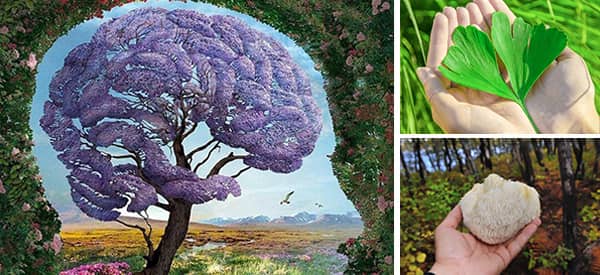
How to Maintain a Healthy, Sharp, and Active Brain While Aging
Some time ago, scientists believed that neurons become worn out and die as the brain ages. However, they later discovered that the brain repairs itself despite the aging process. It builds a new connection between surviving neurons, only it is already slower than it was in its prime. As a result, one’s reaction time, intellectual speed, and cognitive capacity are diminished with age.
In worst cases, some random and unnatural neuron death does occur in the brain. It can result in debilitating diseases like Alzheimer’s, Parkinson’s, or Huntington’s diseases. These are often a result of decreased blood flow to the brain due to cardiovascular diseases, traumatic injuries, environmental toxins, and infections. Genetic disorders also play a role in the eventual intellectual decline.
To combat age-related cognitive issues, experts suggest improving the blood flow to the brain. Exercise, good sleep, a healthy diet, and being intellectually engaged will help. Here are a few things you can do to keep your brain sharp and active.
Play Mind Challenging Games
Brain exercises keep the mind active and delay memory loss and mental problems. Board games, puzzles, word games, brainteasers, and the like speed up the processing of information. An active mind can support new cell growth and reduce brain cell damage. Aim for about 10 hours a week of brain sessions to enhance your cognitive responses.
Learn Something New
Take a class, learn a new language, play a sport, or travel somewhere – these are just a few fun activities to keep your brain stimulated. As you learn something, it sparks curiosity, and new connections are created among the neurons. It enables the brain to regrow synapses to transfer the brain’s messages and functions more quickly.
Space It Out
A break between learning sessions enhances the ability to retain new information. Thus, it’s important not to cram every new learning in your brain at once. Spacing the activities boosts neuron activation to facilitate better information retrieval. Space out your session by engaging in a different in-between activity… or give yourself a power nap.
Take a Power Nap
The duration of a nap can have a good and bad side, according to scientists. A good nap for memory retention should last for only about 30 to 90 minutes. Anything longer than that can be disruptive and cause a poor nighttime sleep cycle. Longer naps can make you feel groggy and mess up your sleep later at night.
Exercise
Like brain exercise, you also need to keep your body active to improve your heart and keep a healthy blood flow. Physical activities help improve brain cognition and neuron formation, or neurogenesis. You can do an intermittent aerobic activity for about 6 to 10 minutes a day. Older adults may include some resistance training twice a week to get the most out of an exercise.
Get Enough Sleep
A night of deep and restorative sleep is important for the brain to support many of its functions. Sleeping improves the brain pathways, making room for new memories.. The brain does not rest while you sleep; rather, it becomes more active as it progresses through the various distinct phases. Adults should aim for 7 to 9 hours of sleep, not just to help the brain, but basically to reset the whole body system.
⇒ Trouble falling asleep? Have a look at the Anxiety & Stress Tincture
Medicinal Herbs to Help With Cognitive Health
Medicinal herbs make effective home remedies for addressing many ailments. They have been used for thousands of years, even after the discovery of modern medicine. There are specific herbal remedies that work wonders for the brain’s cognitive function, and here are some of the best:
1. Ginkgo Biloba
Often referred to as the “brain herb,” Ginkgo Biloba has long been used as a natural brain booster. It helps improve memory and concentration in age-related memory loss, such as dementia. Researchers documented its effectiveness in cognitive improvement in seniors as it enhances cognition and treats cognitive decline.
When taking Ginkgo Biloba, it is advised to reduce the dosage after 10 days. It can become toxic as the herb reacts with Vitamin B6. Ginkgo is good for use within the suggested dosage, but it should not be taken along with other medications.
2. Lemon Balm
Lemon balm is a highly effective anti-aging and calming herb that is used for treating brain disorders. It can improve age-related cognitive performance, increase alertness and boost memory retention. Lemon balm inhibits acetylcholinesterase or the brain enzyme that breaks down acetylcholine which can cause dementia, Parkinson’s, and Alzheimer’s diseases.
However, lemon balm is recommended only for short-term use. It should not be taken with sedative medication as it can cause extreme drowsiness. Lemon balm may also decrease the effect of thyroid hormones.
A potent lemon balm tincture is available in Nicole’s apothecary.
3. Lion’s Mane
Lion’s mane is a botanical mushroom with a globular shape and long tendrils. It is bioactive, which means it can also be taken as a supplement and well-absorbed by the body. Taking a lion’s mane is said to give one the “nerve of steel” or “memory of a lion.” Owe it to its nootropic property that heals, protects, and regenerates neurons. Lion’s mane is used for addressing ADHD, Alzheimer’s disease, anxiety, and memory loss.
Lion’s mane has moderate drug interactions and should not be used in combination with diabetes and blood clotting medicine.
4. Cordyceps
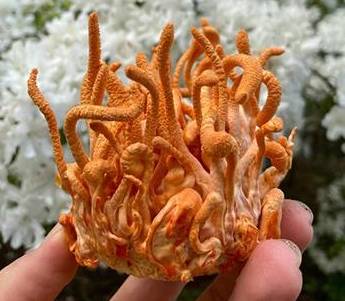 Cordyceps is a fungus used in Traditional Chinese Medicine (TCM) for treating fatigue and many ailments. Athletes consume it to improve the body’s oxygen use and the elderly use it to slow down aging. Cordyceps has anti-aging properties that prevent oxidative cell damage, and improve memory and learning. It also strengthens the immune system, protects against cancer, calms inflammation, and reduces fatigue.
Cordyceps is a fungus used in Traditional Chinese Medicine (TCM) for treating fatigue and many ailments. Athletes consume it to improve the body’s oxygen use and the elderly use it to slow down aging. Cordyceps has anti-aging properties that prevent oxidative cell damage, and improve memory and learning. It also strengthens the immune system, protects against cancer, calms inflammation, and reduces fatigue.
Cordyceps interacts with anticoagulant, antidiabetic and immunosuppressant drugs.
⇒ Try these potent mushrooms, all found in the Mushroom Fortress
5. St. John’s Wort
It is the most popular herbal mood booster used for treating mood and sleep-related disorders. In low doses, St. John’s Wort can enhance the activity of neurotransmitters for improving body functions and concentration.
This herb is very potent and cannot be used in combination with other prescription drugs. St. John’s Wort may be a helpful brain tonic, but excess use may worsen memory loss problems.
6. Bacopa Monnieri
Bacopa is a creeping plant widely used in India as a brain tonic. It promotes mental health, rejuvenates the aging brain, and boosts mental acuity and cognition. Taking Bacopa Monnieri inhibits cholinesterase and reduces the formation of plaque in the brain that causes Alzheimer’s. Some people take bacopa as an oral herbal supplement, while others use the transdermal route through a massage. Its essential oil is potent, which is especially useful for people with liver problems, who cannot effectively ingest drugs.
Bacopa is toxic in high doses due to its alkaloid content. It may also interact with other drugs like blood thinners and barbiturates.
⇒ Interested? Try some of the above herbs, found in the Brain Bundle.
Takeaway
Memory impairment is a common age-related problem that older adults suffer from. At any age, occasional forgetfulness and memory lapses also happen. Some cognitive diseases like Alzheimer’s may be unpreventable and untreatable. But, there are ways to help delay its progression. Keeping the brain actively working can do so much in maintaining its function for healthy, sharp, and active aging.
You may also like:
DIY Brain Boosting Tonic
The Mushroom That Got Me Out of The Wheelchair (Video)
Best Mind Care Remedies for Seniors



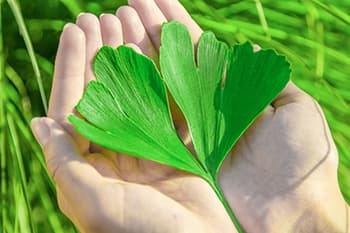
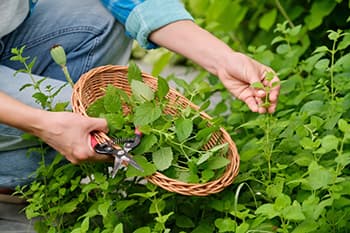
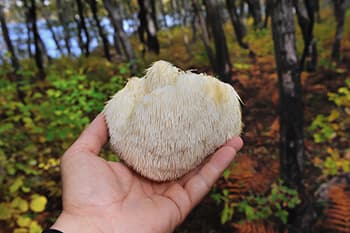
Alzheimer’s unpreventable and untreatable? Please check out Dr. Dale Bredesen and his ReCode program, which he argues can reverse Alzheimer’s. It’s true that there are no simple drug cures for this disease, but the program he developed uses multiple strategies like diet change, removing toxic inputs for example pesticide exposure, reducing inflammation, and more. It’s personalized for each individual’s situation. He also argues that following the general strategy nearly guarantees prevention. Please do not believe that “nothing can be done” to stop Alzheimer’s, a disease only fairly recently emergent. It’s caused by factors in our environment and can be stopped.
Hello AP,
Thank you so much for reading our article and for sharing this with us. It is much appreciated.
However, the article does not state that Alzheimer’s is unpreventable and untreatable. It states that it “may be”, therefore expressing uncertainty, as everything depends on the patient’s age and overall health, plus many other factors.
Many blessings and good health!